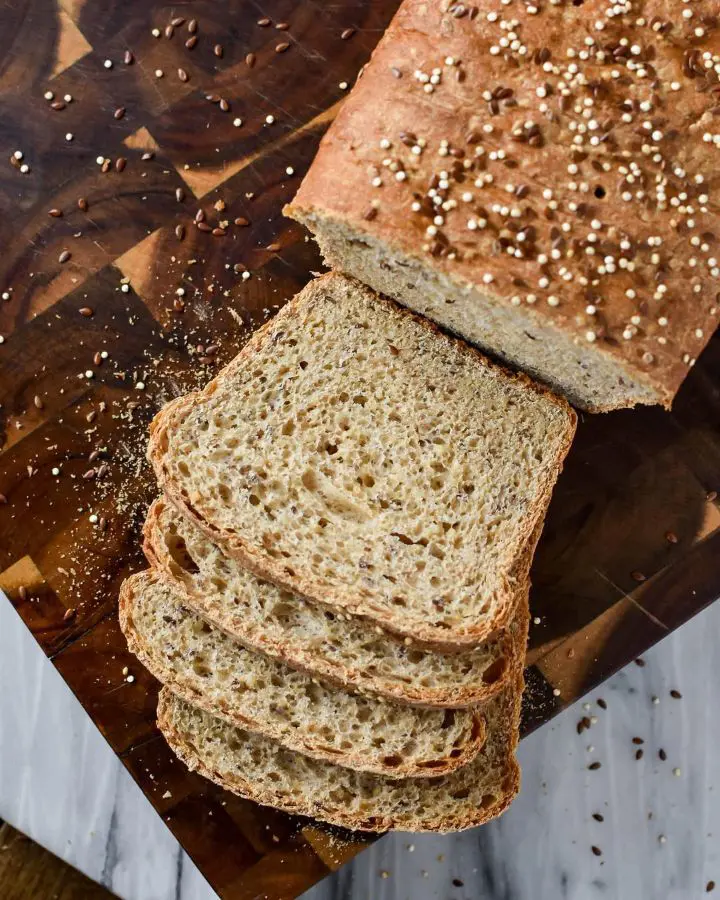25 High Fiber Foods You Should Be Eating Regularly
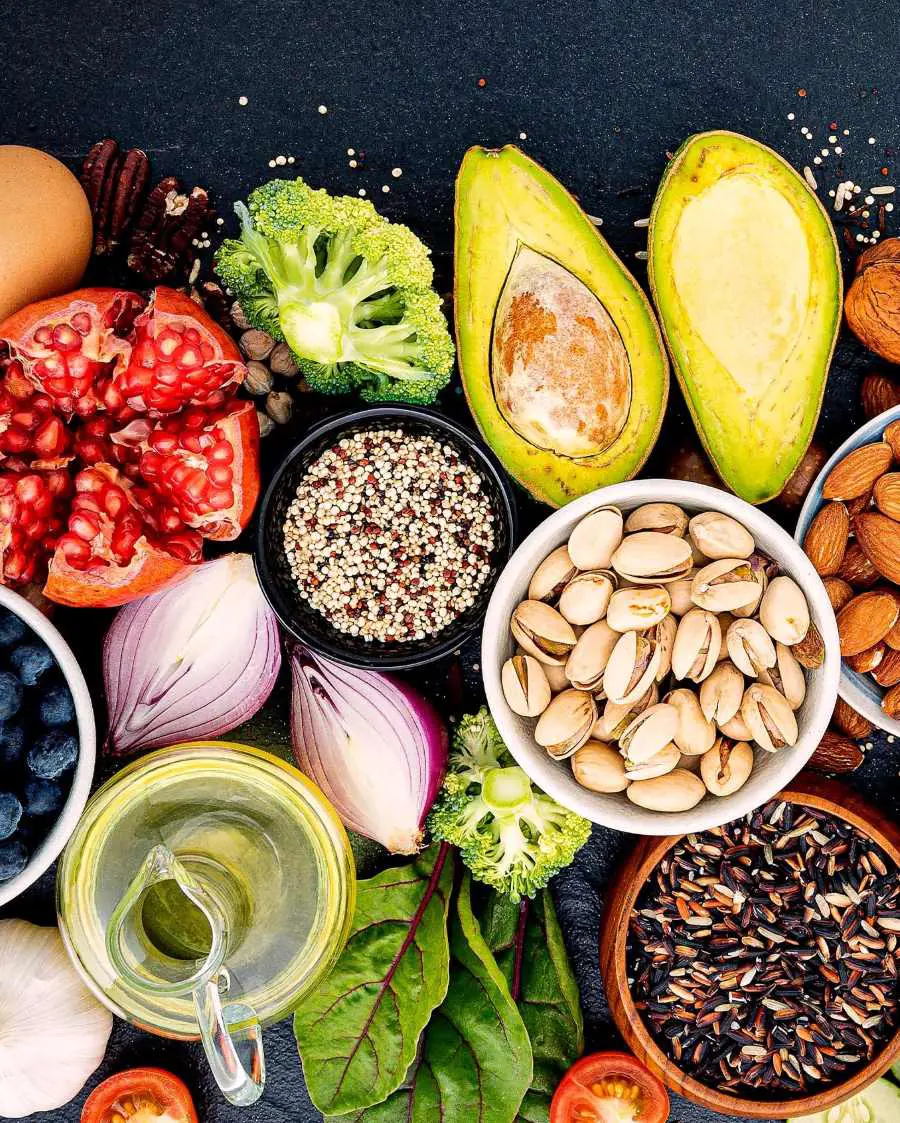
This post may contain affiliate links. If you make a purchase through links on our site, we may earn a commission.
Fiber is essential due to its array of health benefits, which are not only linked to a reduced risk of heart disease, colon cancer, and diabetes but also extend to improved brain health.
The suggested daily fiber intake is 25 to 30 grams, with variations based on age and 'gender. However, the average adult is ingesting a mere 15 grams per day, as reported by UCSF Health. The plant kingdom has a lot to offer, and the most remarkable source of dietary fiber might just take you by surprise.
1. Almonds
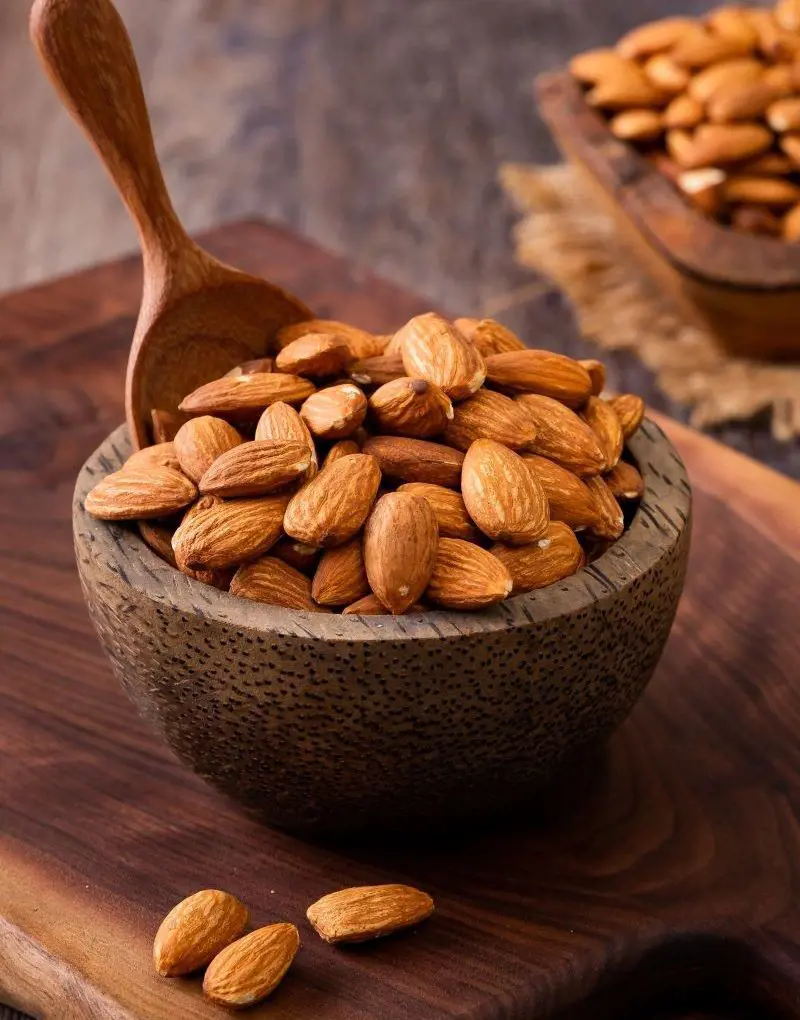
Almonds provide 4 grams of fiber per one-ounce (28 grams) serving. They also supply many nutrients, including vitamin E, manganese, magnesium, and healthy fats.
With their natural lack of salt and minimal sugar content, almonds stand out. Whether you're following a plant-based diet or seeking an intelligent protein-packed snack, almonds emerge as an ideal selection.
2. Apples
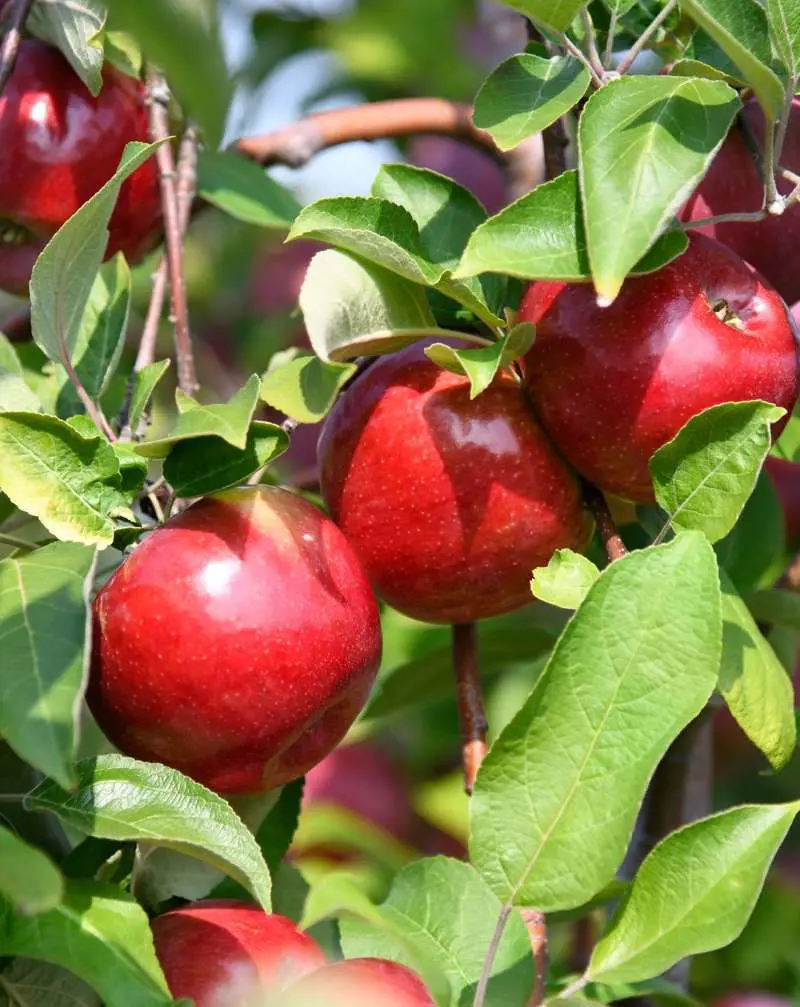
A medium-sized apple provides approximately 4 grams of fiber, notably abundant in pectin, a form of soluble fiber associated with reducing cholesterol levels.
It takes about 11 granny smith apples or 14 red delicious apples to achieve your daily recommended fiber. Apples can be consumed in multiple ways: raw in salads, as juice, baked into pies, spread as apple butter, or even cooked into savory sauces.
3. Artichokes
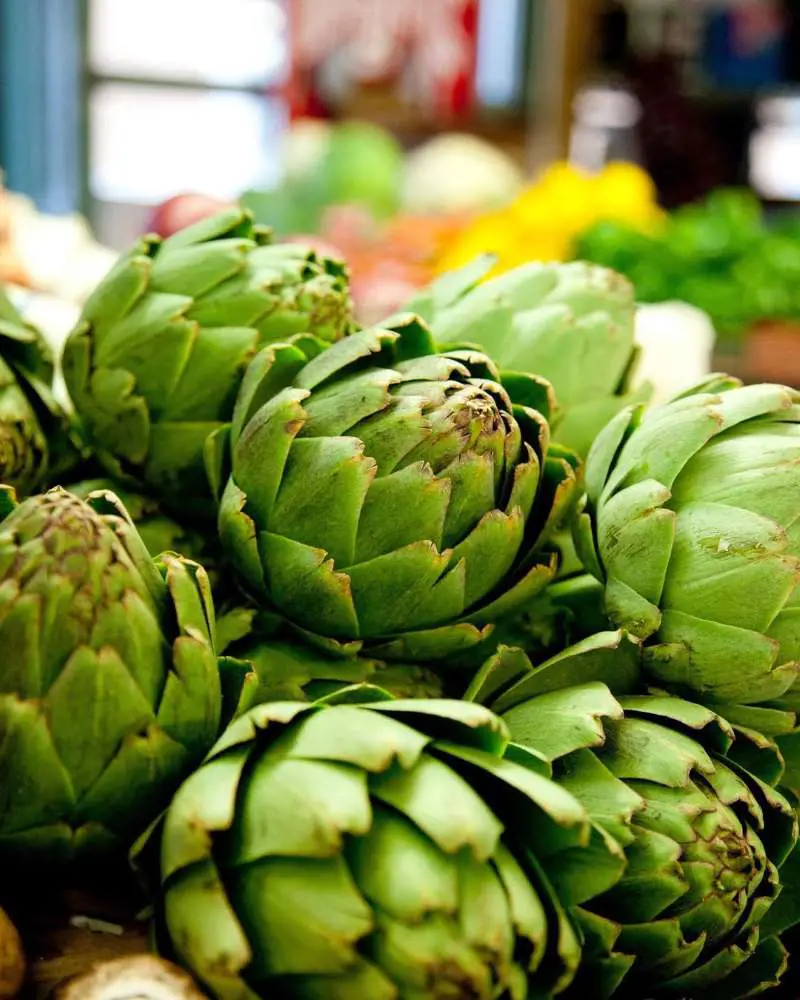
A single raw globe or French artichoke provides 6.9 grams of fiber. They are also super rich in antioxidants, which contribute to improving skin health.
Artichokes are commonly boiled, steamed, or roasted and paired with hollandaise, butter-based sauces, or vinaigrette. They also make a delectable addition to pizzas and can be combined with spinach to create a delightful vegetable dip.
4. Asparagus
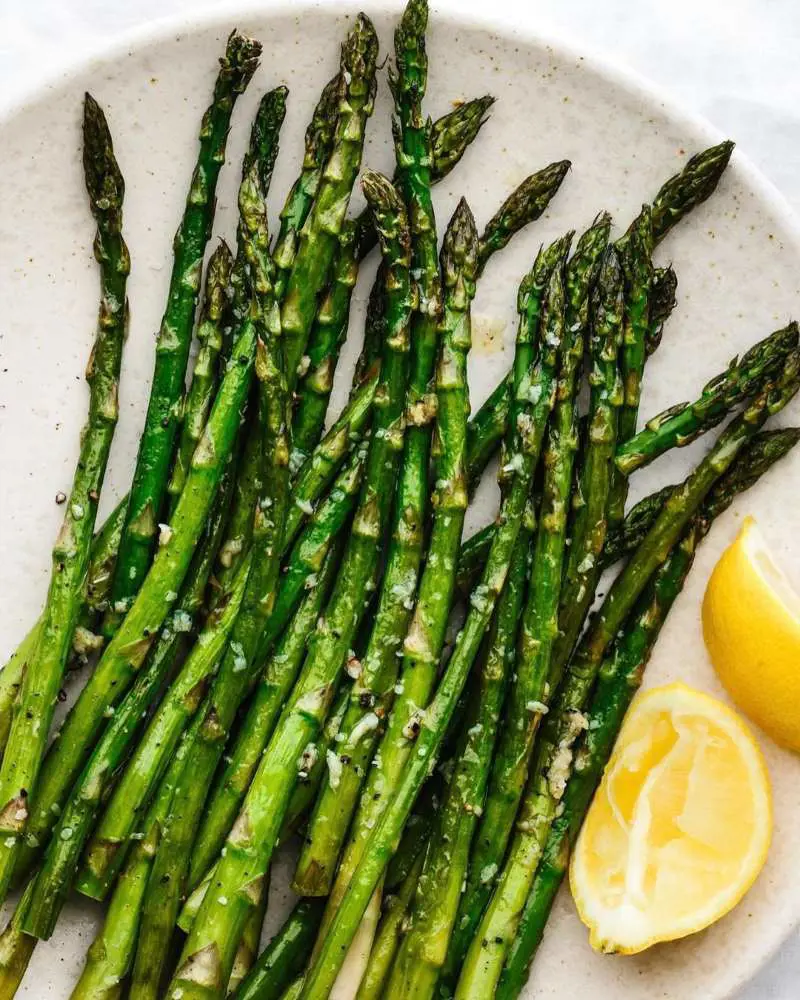
Just half a cup of asparagus supplies 1.8 grams of fiber, equivalent to 7% of your daily needs. Some of its notable benefits stem from its low caloric value and its rich reservoir of vitamins, minerals, and antioxidants.
The beautiful flower-like spear is also abundant in asparagine. Research has shown that asparagine plays a crucial role in regulating cancer cell amino acid balance, anabolic metabolism, and cell proliferation.
5. Avocado
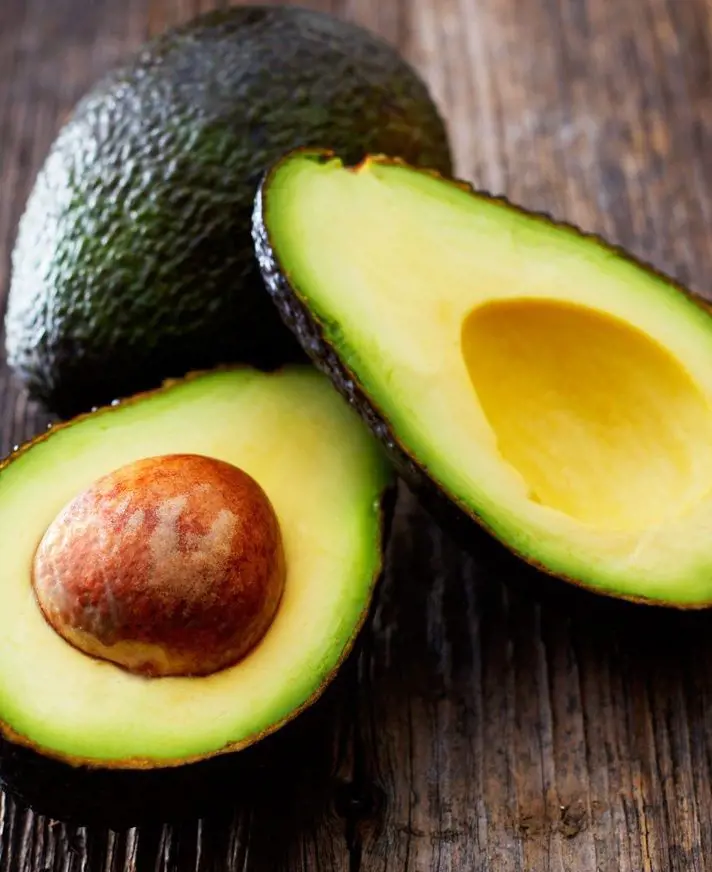
Just one cup of raw avocado supplies 10 grams of fiber. It also provides vitamin C, vitamin E, potassium, magnesium, healthy fats, and various B vitamins.
Raw avocado flesh contains a substantial 73% water content, 15% fat, 9% carbohydrates, and 2% protein. This versatile fruit seamlessly complements a variety of dishes, including salads, toast, main courses, eggs, and more.
6. Bananas
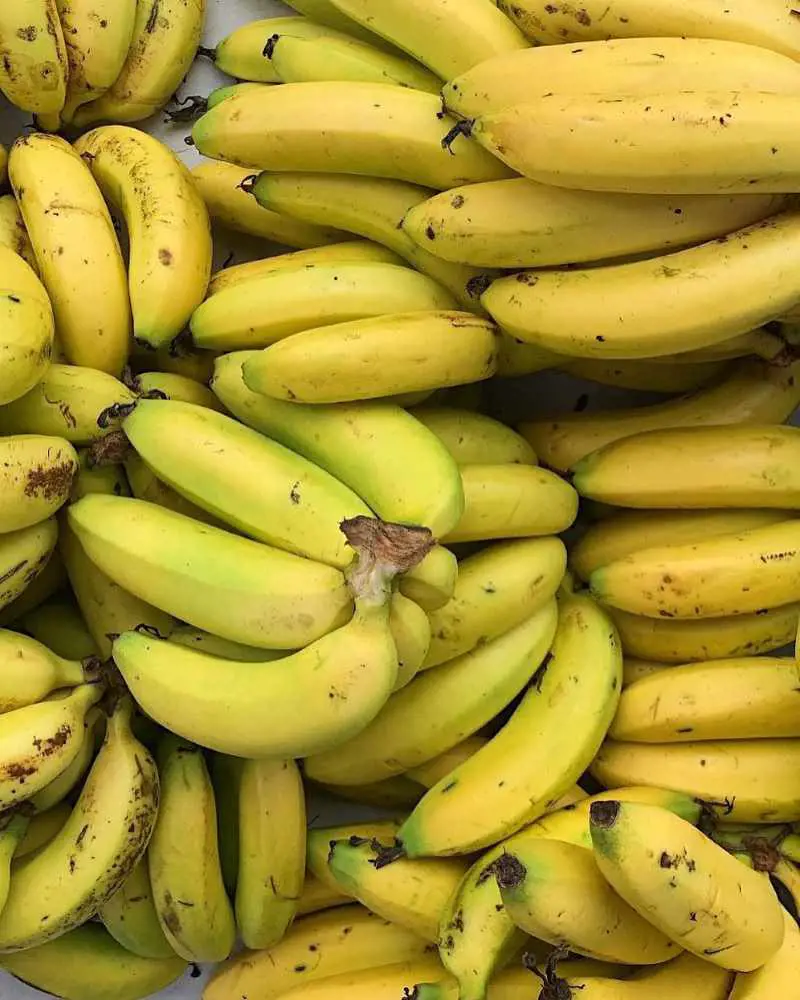
Bananas stand out not just for their potassium content but also their fiber, delivering 3.1 grams per medium-sized banana. They offer a spectrum of nutrients like vitamin B6, vitamin C, and potassium.
When in their green or unripe state, bananas offer a noteworthy dose of resistant starch, an indigestible carbohydrate that functions like fiber.
7. Barley
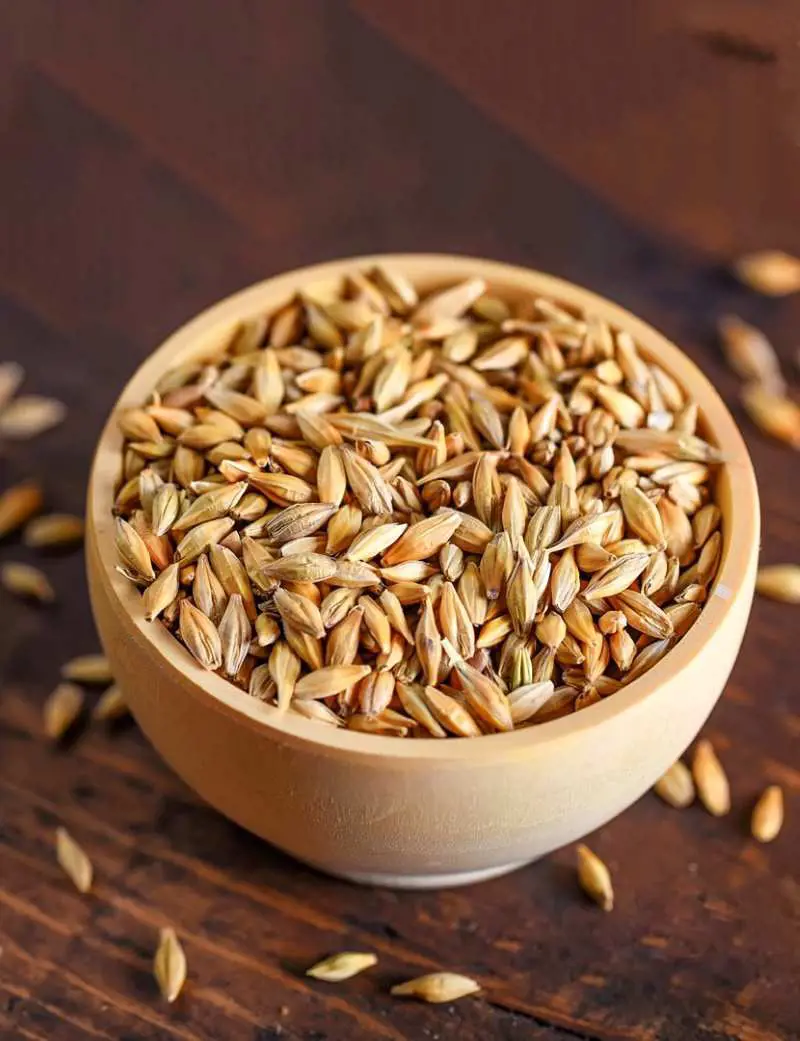
Barley provides 17.3 grams of fiber per 100 grams, surpassing the fiber content of other whole grains like wheat (12.2 grams), bulgur (12.5 grams), and rye (15.1 grams).
For a 100-gram serving, cooked barley provides 515 kilojoules of food energy and serves as a rich source of crucial nutrients, such as essential B vitamins like niacin, dietary fiber, and dietary minerals such as manganese and iron.
8. Beets
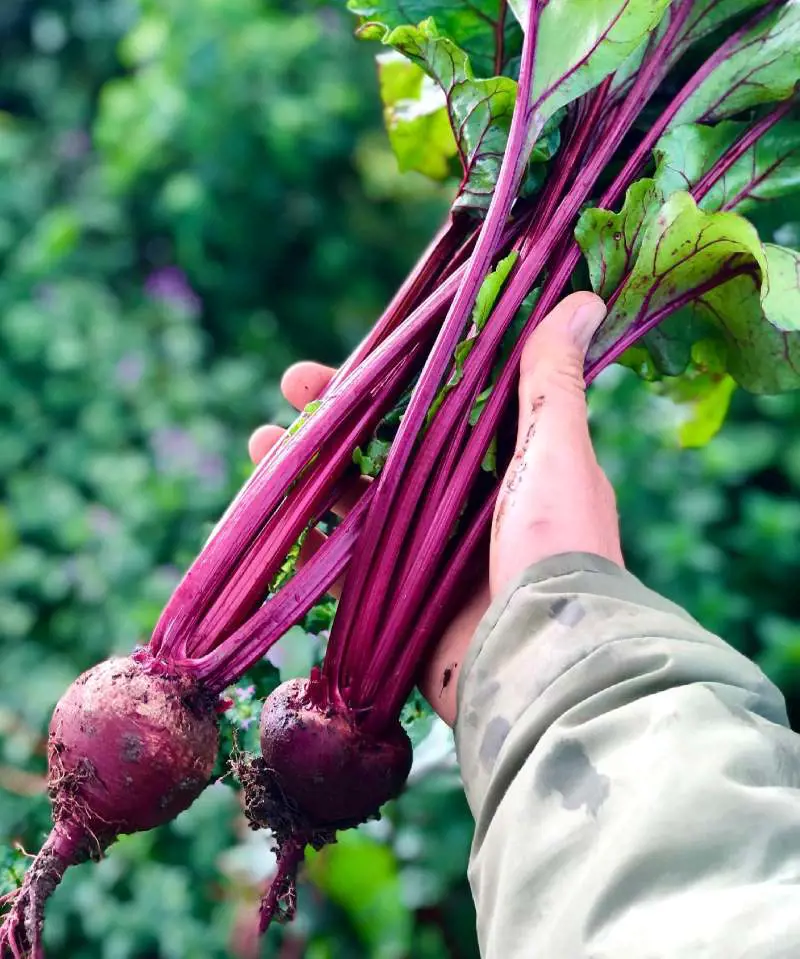
One cup of raw beets contains 3.8 grams of fiber (or 2 grams per 100 grams). This root vegetable also has crucial nutrients, such as iron, folate, manganese, potassium, and copper.
They further provide inorganic nitrates, which are nutrients that hold potential advantages for regulating blood pressure and enhancing exercise performance.
9. Berries
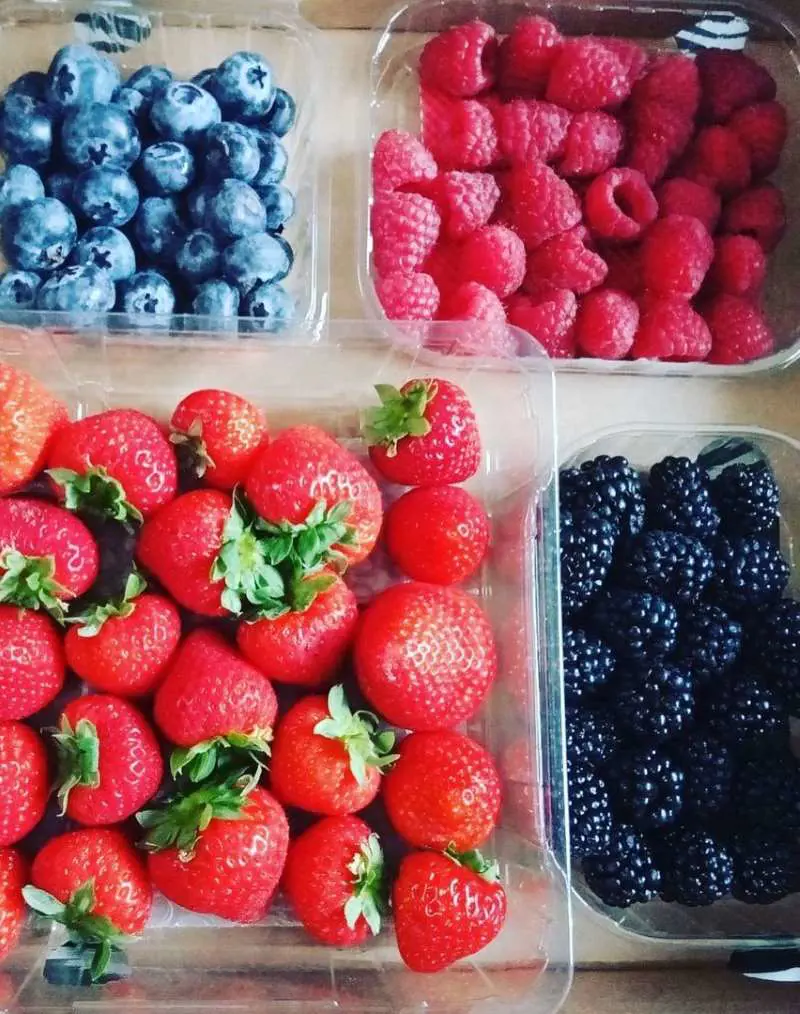
Berries, such as blueberries, strawberries, blackberries, and raspberries, are known for their elevated level of fiber, vitamin C, and antioxidant polyphenols.
A cup of freshly-picked raspberries offers 8 grams of fiber (or 6.5 grams per 100 grams). Correspondingly, within a 100-gram portion, blueberries contribute 2.4 grams of fiber, while blackberries offer a substantial 5.3 grams.
10. Broccoli
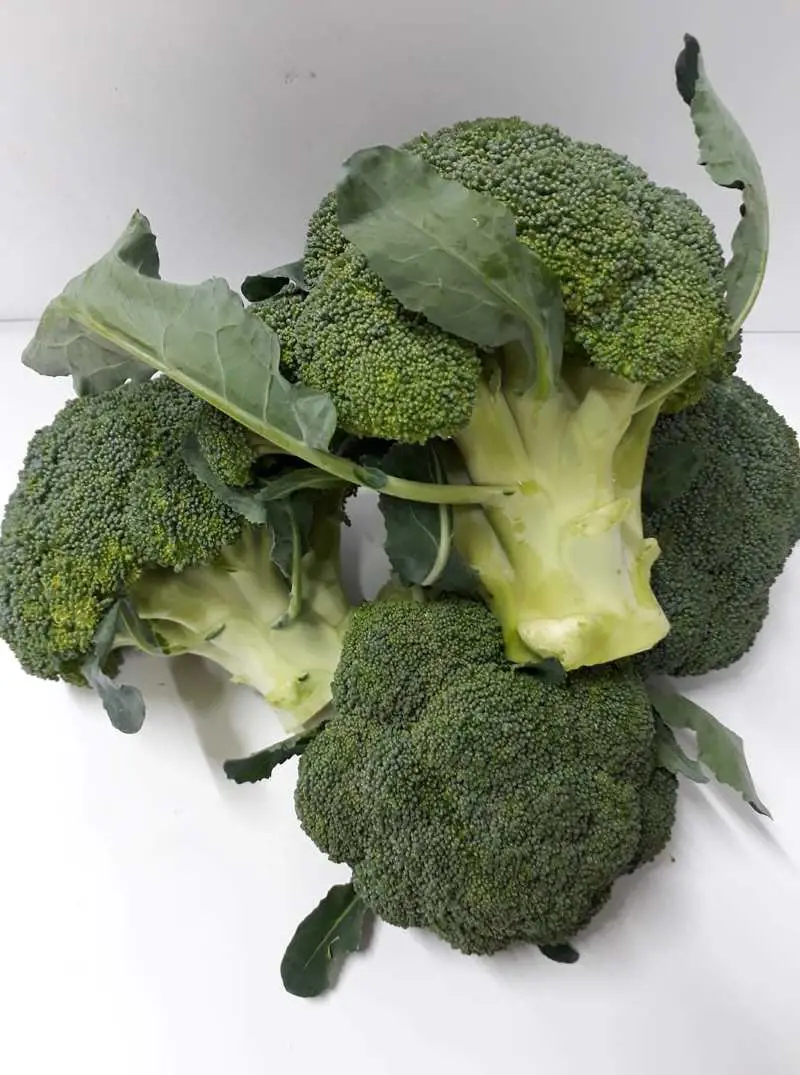
Broccoli stands as a fiber-rich gem, boasting 2.6 grams within every 100-gram serving. This cruciferous vegetable goes beyond fiber, presenting a nutritional profile that includes vitamin C, vitamin K, B vitamins, potassium, iron, folate, and manganese.
In comparison to other vegetables, broccoli also distinguishes itself with a relatively high protein content.
11. Brussels Sprouts
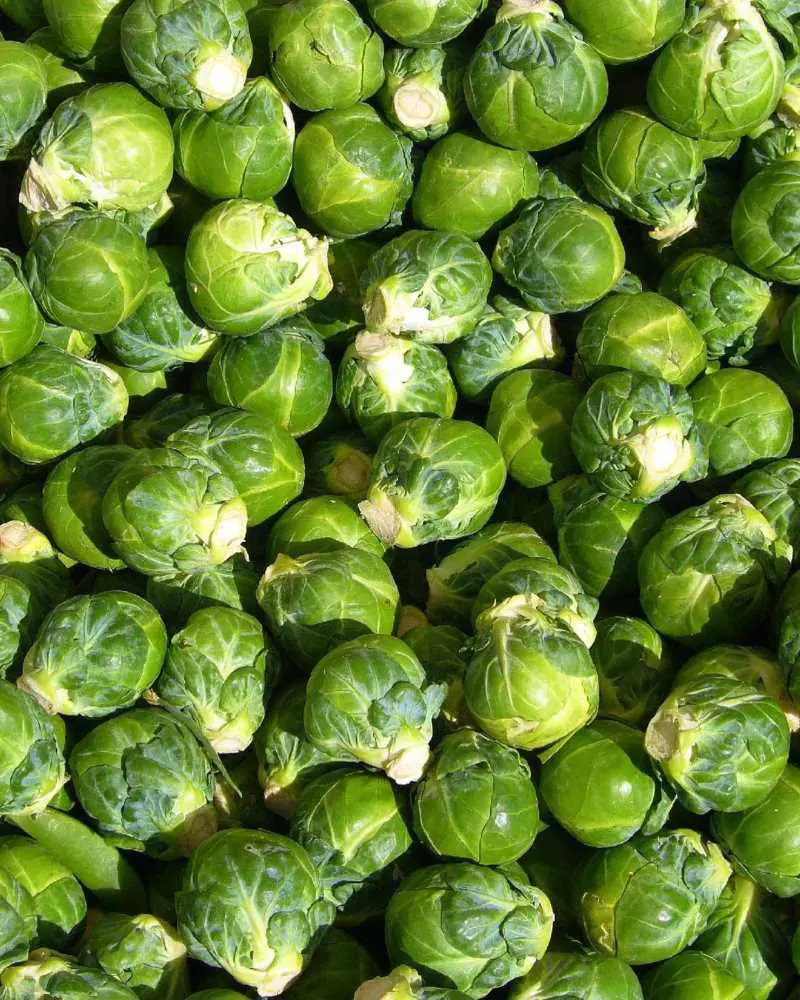
A mere 100 grams of raw Brussels sprouts supply 3.8 grams of fiber. Related to broccoli, these cruciferous vegetables also contain vitamin K, folate, and potassium, alongside potentially cancer-fighting antioxidants.
Consider combining Brussels sprouts with fiber-rich pecans within a vibrant salad, or savor their exquisite flavor when roasted and mingled with creamy avocado.
12. Carrots
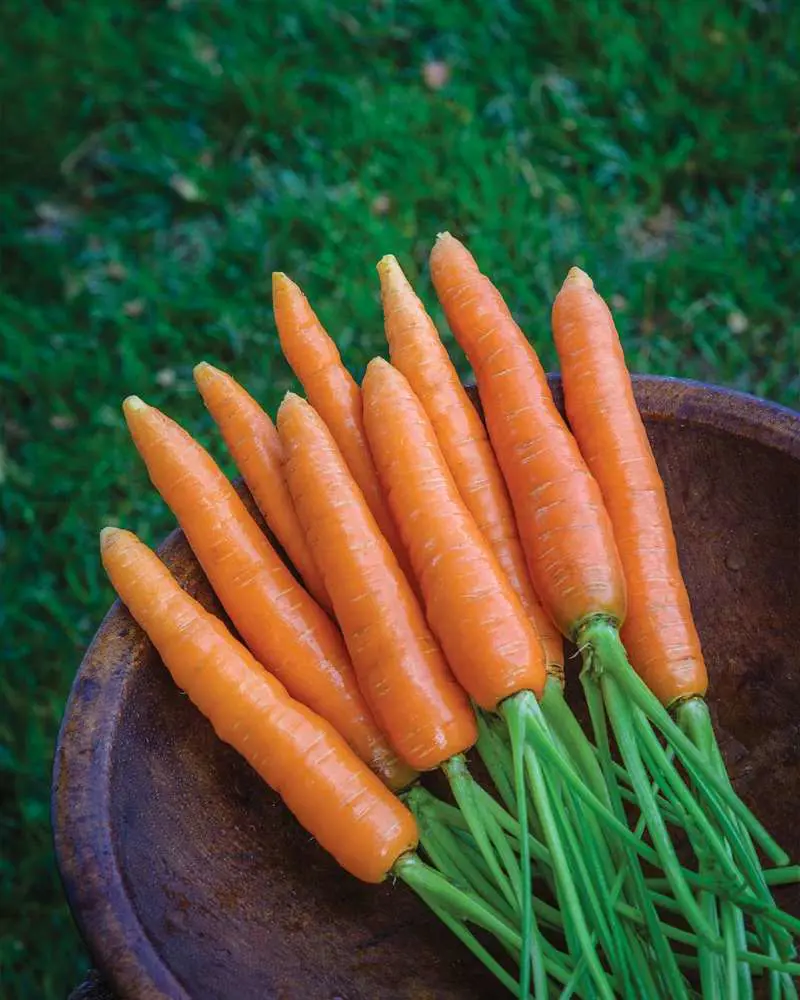
Carrots contain 2.8 grams of fiber per 100 grams. In addition to fiber, this root vegetable provides vitamin B6, vitamin K, magnesium, and beta carotene, an antioxidant that gets transformed into vitamin A in your body.
They are believed to play a role in promoting weight loss, lowering blood cholesterol levels, mitigating the likelihood of cancer, and enhancing the health of your eyes.
13. Chestnuts
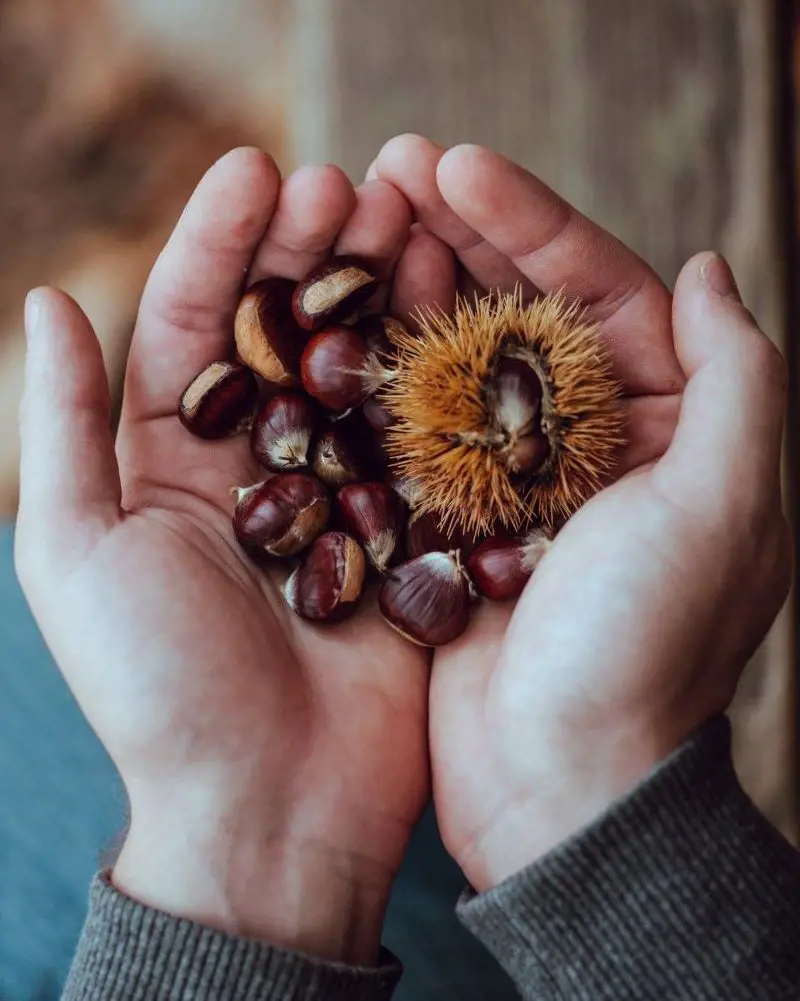
Chestnuts provide a whopping 4.5 grams of fiber per 30-gram serving, surpassing the fiber content of almonds (3.3 grams), hazelnuts (3.1 grams), and walnuts (1.9 grams).
Their caloric content is comparatively modest compared to various other nut varieties, due to their notably low fat composition.
14. Chia seeds
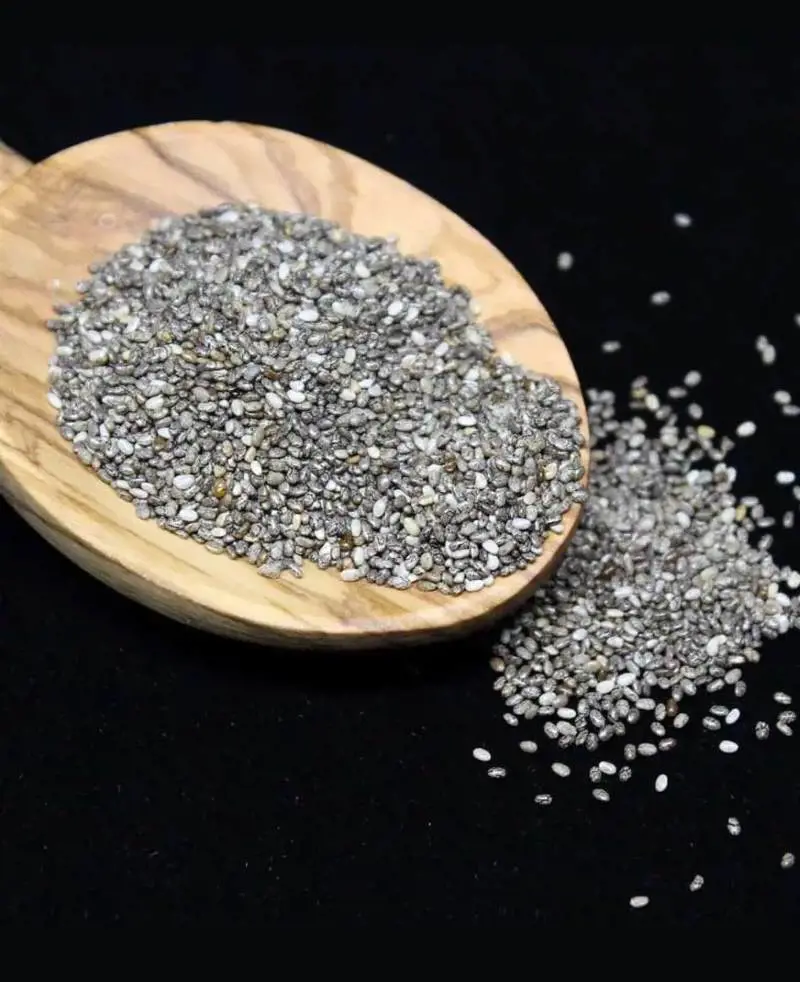
Chia seeds offer 34.4 grams of fiber per 100 grams. These highly nutritious, tiny seeds are a rich source of fiber, which can reduce cholesterol levels, improve heart health, and promote intestinal health.
They also contain high amounts of calcium, phosphorus, and magnesium. Most nuts and seeds provide significant amounts of fiber, for example:
- Pistachios - 10.6 grams
- Sunflower seeds - 8.6 grams
- Pumpkin seeds - 6 grams
- Walnuts - 6.7 grams
15. Dark Chocolate
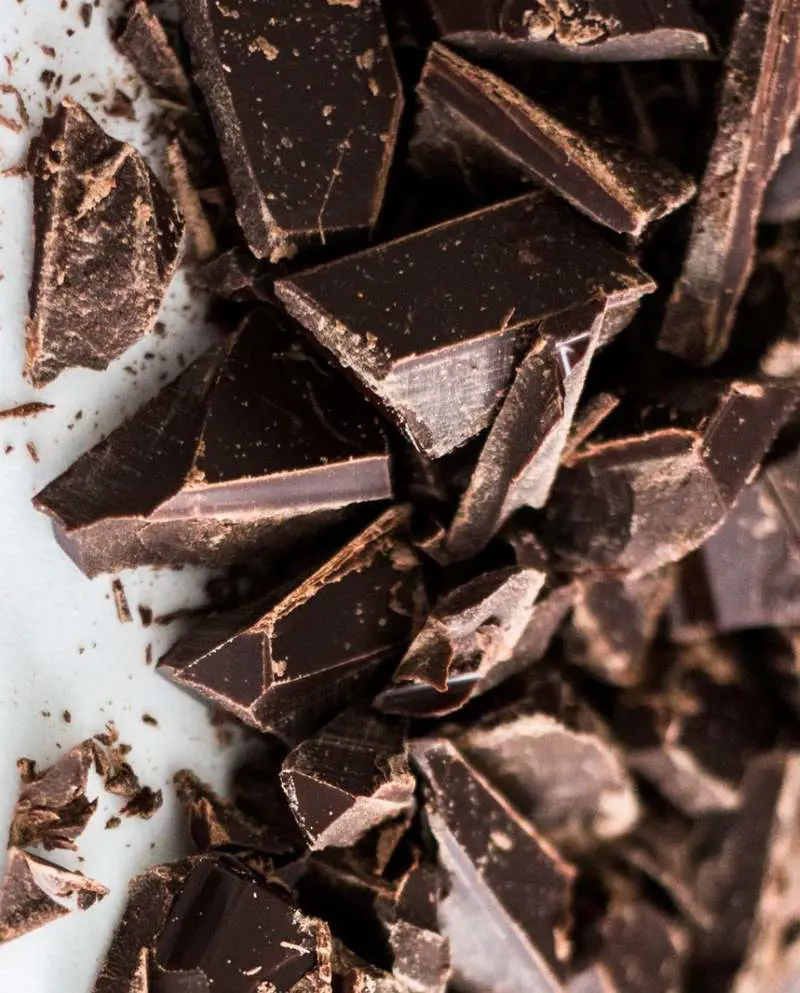
A single-ounce segment of 70-80% cacao dark chocolate provides 3.1 grams of fiber, while a 100-gram portion boasts a higher 10.9 grams content.
Ensure your selection of dark chocolate falls within the range of 70%–95% cocoa content or even higher and avoid products that harbor excessive amounts of added sugar.
16. Dried Fruits
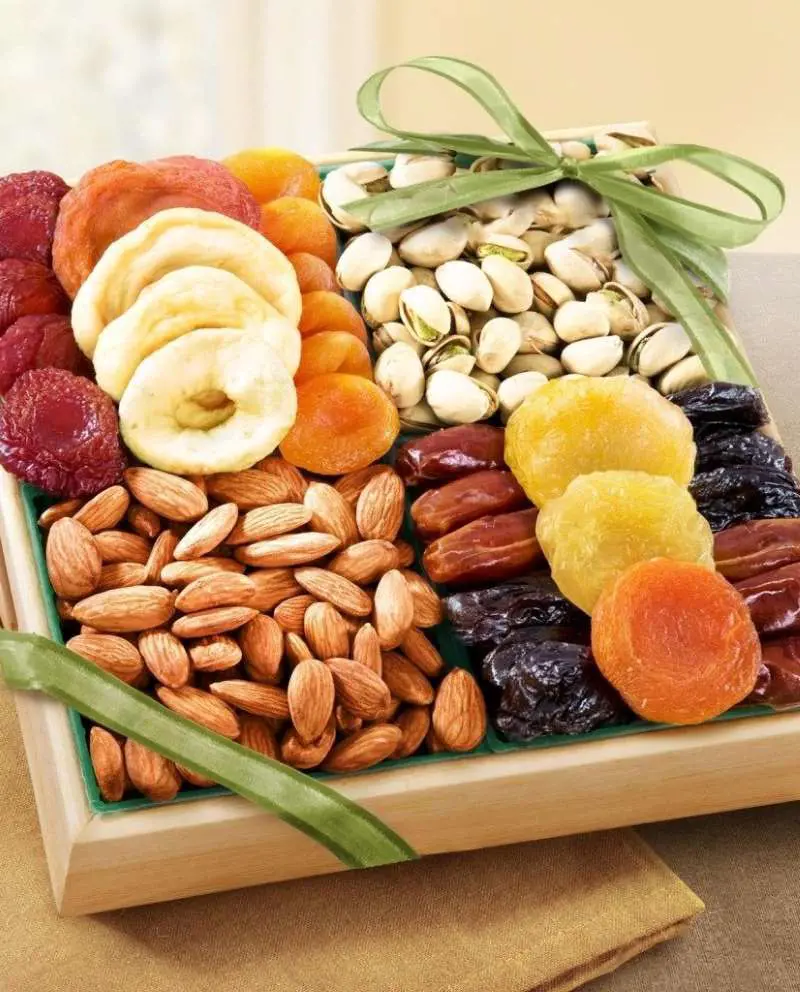
In terms of weight, dried fruits offer as much as 3.5 times the fiber, vitamins, and minerals found in their fresh counterparts. It generally contains a lot of fiber and stands as a rich source of antioxidants, particularly polyphenols.
However, consuming too much can lead to cramps or diarrhea. Begin with a small serving, evaluate your comfort post-digestion, and then consider consuming larger portions.
17. Flaxseed
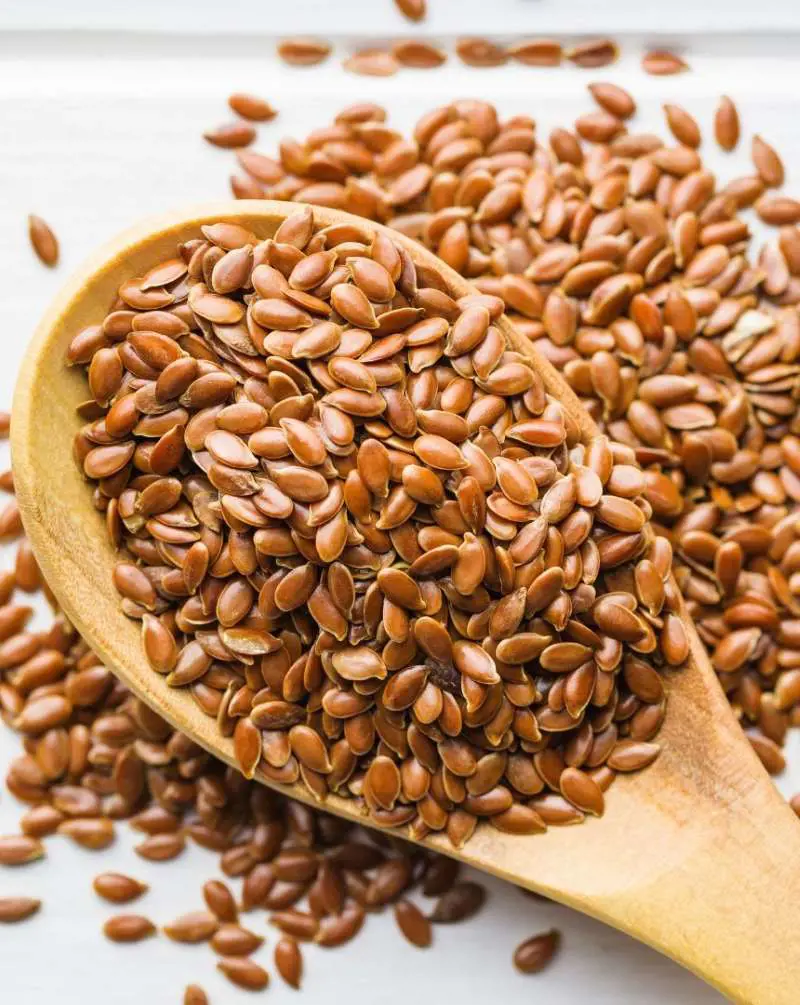
Just one tablespoon (7 grams) of ground flaxseed contains 2 grams of fiber, equivalent to approximately 5% and 8% of the recommended daily intake for men and women, respectively.
It contains both soluble and insoluble fiber, which undergo fermentation by intestinal bacteria, contributing to gut health and enhancing regular bowel movements.
18. Legumes
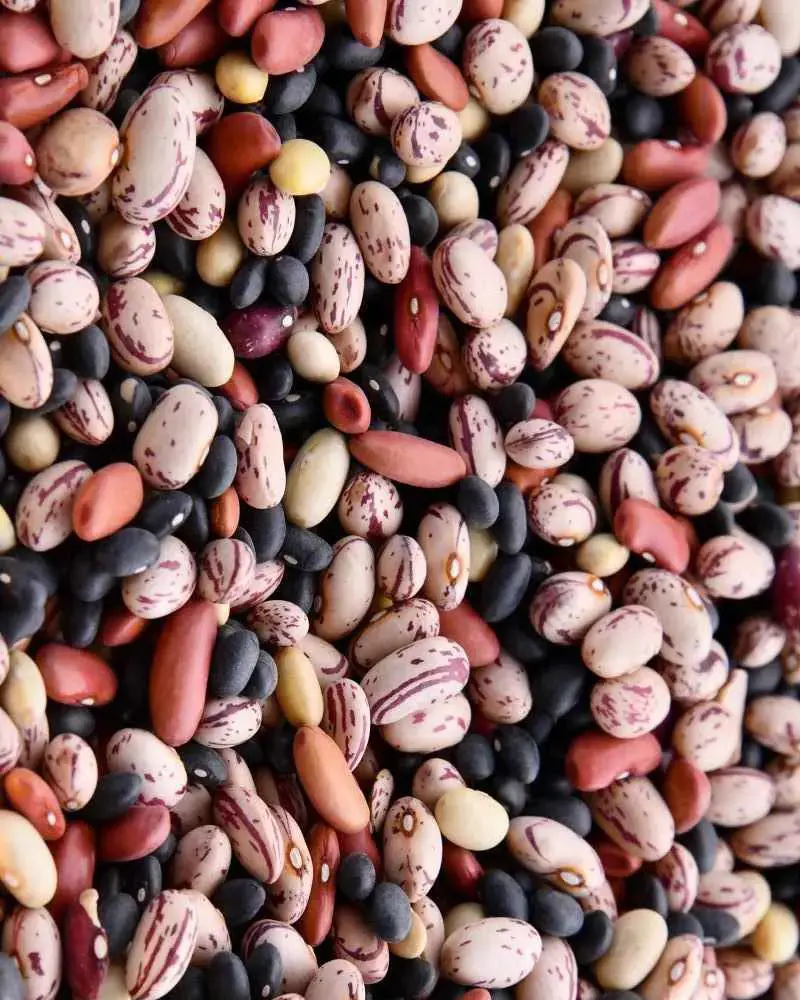
Legumes include beans, soybeans, peas, chickpeas, peanuts, and lentils. These plant-based powerhouses are abundant in nutrients like protein, calcium, iron, fiber, and folate.
Kidney beans, a widely enjoyed legume variety, offer a substantial 12.2 grams of fiber per cup when cooked, equating to 7.4 grams per 100 grams. Other high-fiber legumes include:
- Cooked chickpeas - 7.6 grams per 100 grams
- Cooked 'black beans - 8.7 grams
- Cooked lima beans - 7 grams
- Cooked edamame - 5.2 grams
- Baked beans - 5.5 grams
19. Oats
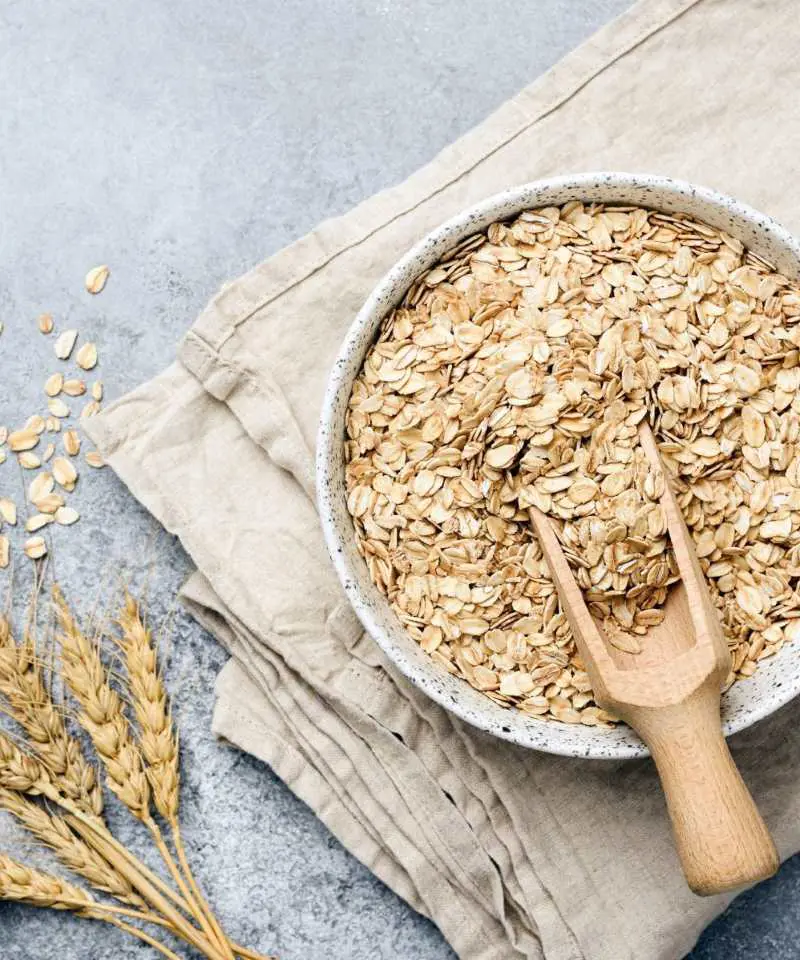
A single cup of raw oats delivers a substantial 16.6 grams of fiber, equivalent to 10.1 grams per 100 grams. These grains, abundant in fiber, also boast a rich array of vitamins, minerals, and antioxidants.
Notably, they contain a powerful soluble fiber known as beta-glucan, which has the potential to aid in regulating blood sugar and cholesterol levels.
20. Pears
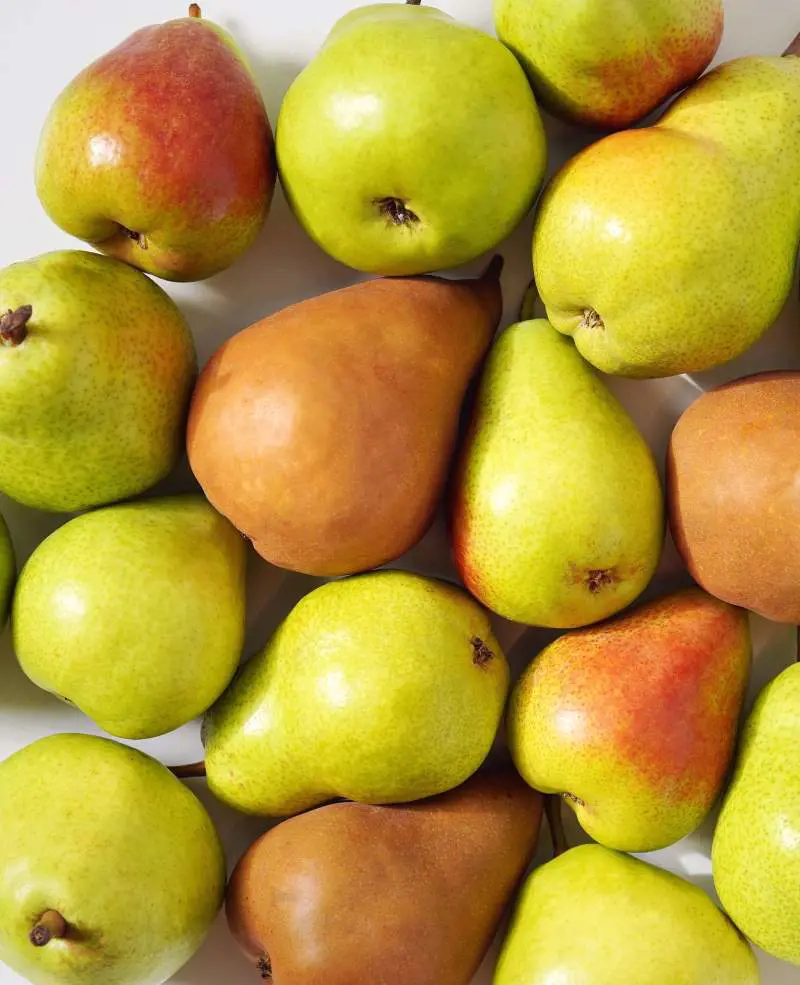
A medium-sized raw pear boasts 5.5 grams of dietary fiber, while a 100-gram portion contains 3.1 grams. Opting to consume pears without peeling offers more fiber, particularly the insoluble kind.
They also contain vitamin C, vitamin K, and minerals like potassium. Try combining the fruit with other fiber-rich foods like beets, lettuce, and pecans for a delicious sweet-and-savory salad.
21. Persimmons
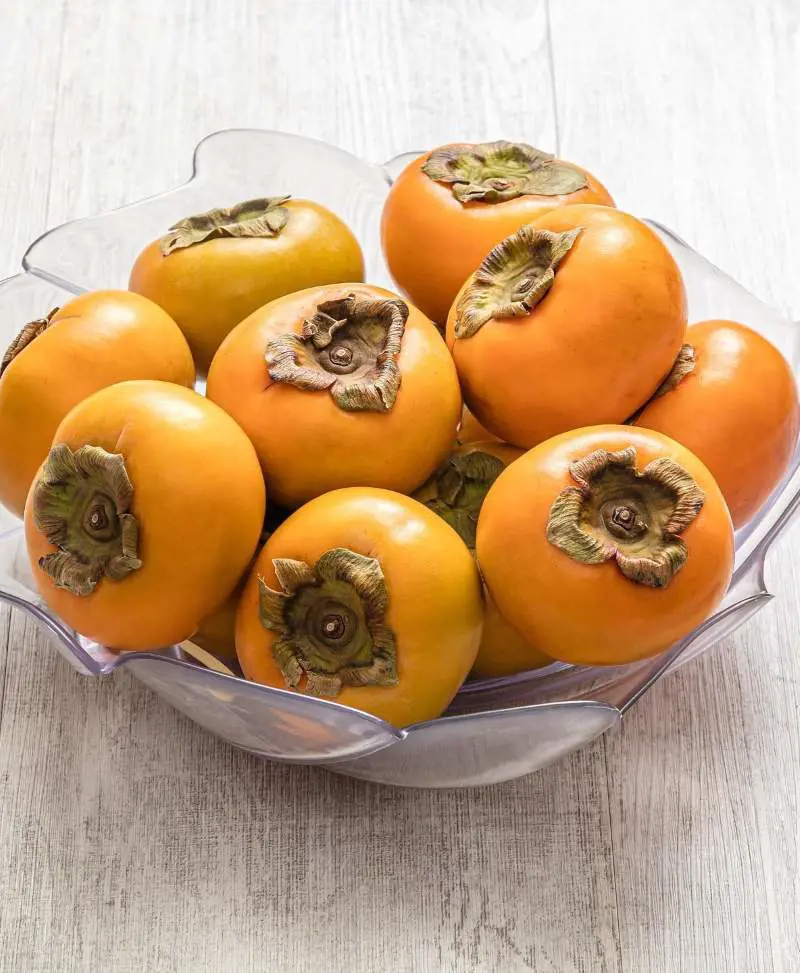
A medium-sized Japanese persimmon (168 grams) contains 6 grams of fiber. With their low-calorie content and high fiber, they are an excellent choice for weight management.
Their blend of nutrients and antioxidants, including vitamins A and C, positions them as an ideal choice for a healthy diet. It's advisable to limit consumption to one persimmon per day.
22. Popcorn

Popcorn offers 14.5 grams of fiber per 100 grams, presenting an enjoyable and healthful method to increase your fiber consumption.
Air-popped popcorn boasts an impressive fiber content, maintaining this quality even when considered calorie for calorie. Nevertheless, adding fats or sugars can lead to a notable reduction in the fiber-to-calorie ratio.
23. Quinoa
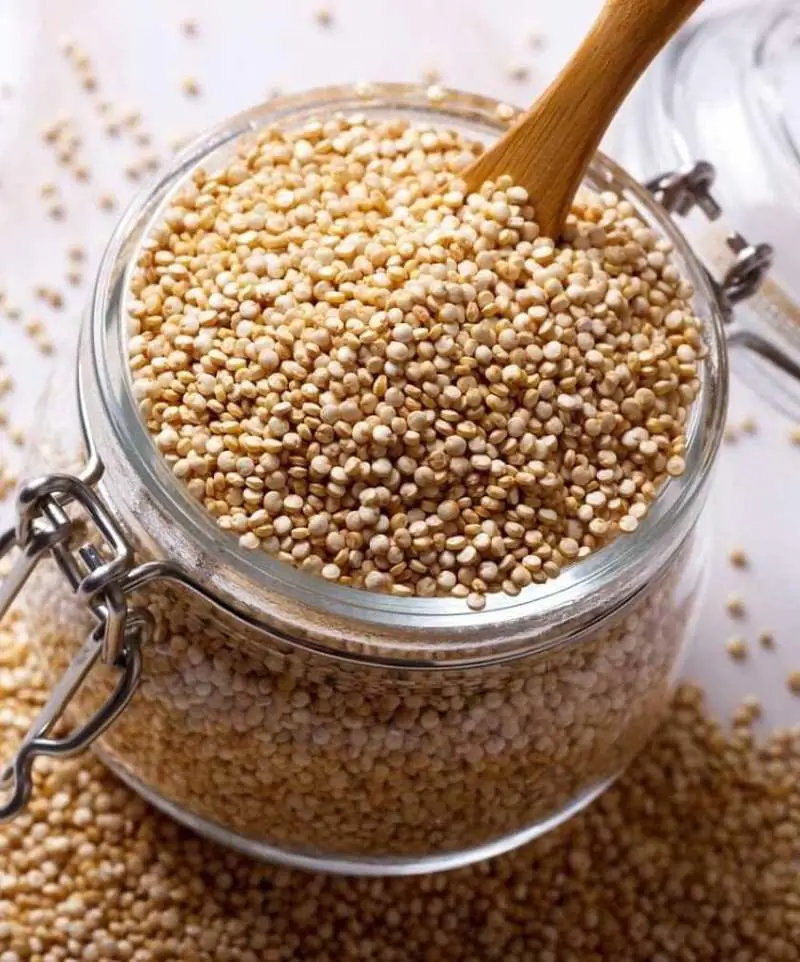
Quinoa, a pseudo-cereal, contains 2.8 grams of fiber per 100 grams. It combines the benefits of protein-rich seeds and whole grains, serving as a valuable resource for individuals following a plant-based diet.
It additionally supplies essential minerals such as magnesium, manganese, and phosphorus, along with vitamins like vitamin B1 and folate.
24. Sweet Potato
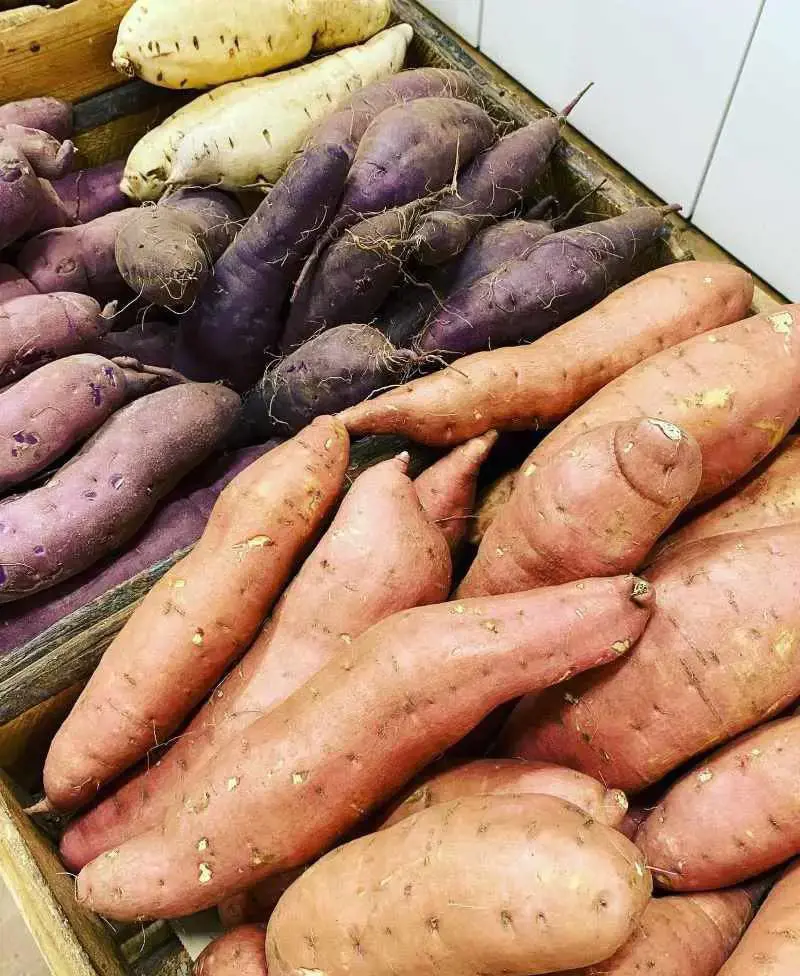
A medium-sized boiled sweet potato (excluding the skin) contains 3.8 grams of fiber, equivalent to 3 grams per 100 grams. They are also an excellent source of nutrients like beta-carotene and anthocyanin.
Consider serving sweet potatoes as a naturally sweeter alternative to baked or jacket potatoes, creatively stuffed with flavorful fillings such as broccoli or onion.
25. Whole Grains
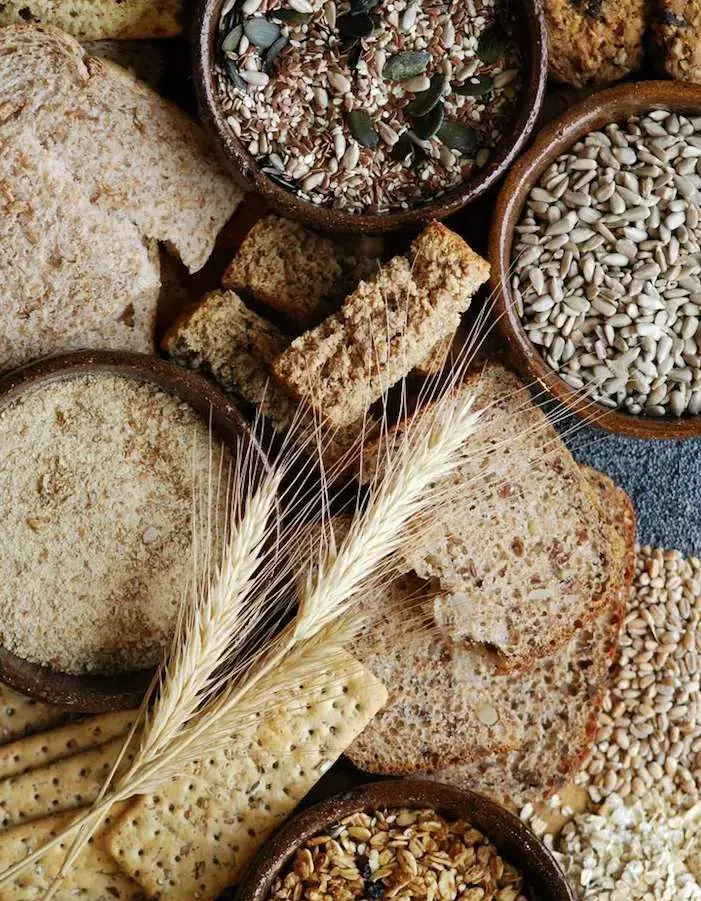
Most whole grains, such as bulgur, brown rice, and corn, serve as a great source of fiber. Unlike their refined counterparts, whole grains are rich in plant compounds, vitamins, iron, zinc, and folic acid.
Whole grains high in fiber include:
- Cooked bulgur - 4.5 grams (per 100 grams)
- Whole wheat pasta - 4 grams
- Buckwheat - 3 grams
- Whole Wheat Bread - 7 grams
- Raw oat bran - 15 grams
- Cooked brown rice - 1.8 grams
Recent posts
Nutrition
Nutrition
Liquorice Root: Benefits And Uses
You can spell it liquorice or licorice; this herb or root has been in use for centuries in most medicinal applications, as a natural sweetener and to enhance flavors. Regarding its origins, it comes from the root of the "Glycyrrhiza galbre" plant and...
Nutrition
Is Ramen Healthy? Here's What Dietician Says
Ramen is a traditional dish from Japan that in the recent era has become a global phenomenon. This beloved and comforting soupy dish however has been questioned, when it comes to its nutrition. Best for those looking for a quick (instant), affo...
Nutrition
Is Wheat Bread Healthy? An Expert Picks
Wheat bread has been proudly celebrated as a dietary staple in countless homes for as long as people can remember. It has earned a reputation as a healthier alternative to white or any other processed bread, that no one can deny. Because of its evide...
Nutrition
Is Sausages Healthy? Nutrition And Health Benefits
Sausages are tasty in an addictive way, making them one of the most popular foods worldwide. You may have enjoyed this convenient food often, whether on a bun with mustard or grilled on a barbecue, the simple preparation methods are what makes its co...
Nutrition
Ice Cream Benefits: Nutrition, Potential Risks And Best Choices
Not gonna lie, ice cream is often taken as a guilty pleasure treat, a delightful treat that takes you to cloud nine but is frequently associated with negative health implications. Nonetheless, the happy news is when devoured mindfully, ice cream can ...
Nutrition
Is Sushi Healthy? Some Good and Bad Choices
Sushi is a wholesome meal and a beloved Japanese dish. The traditional sushi recipe is a simple combination of fresh fish, vegetables, and vinegared rice which is popular for its minimalistic preparation. As with any food, there are factors that dete...


